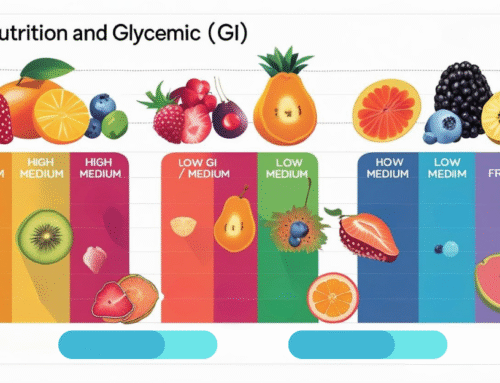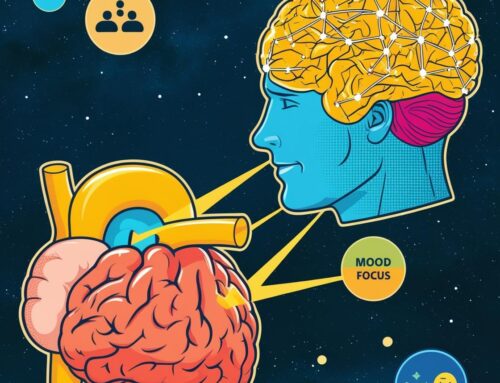Smart Ayurveda – The Next-Gen AI-Powered Transformation:
*A Tiny White-paper
Also understand how –
AI and Machine Learning Driving Ingredient Optimization for Next-Gen Wellness
Chapter 1: Introduction to Smart Ayurveda
The Dynamic Fusion of Ayurveda and Cutting-Edge Technology
Ayurveda, the ancient treasure trove of holistic healing, has withstood the test of time for over 5,000 years—proving its deep-rooted wisdom in restoring balance and harmony. But what happens when this time-honored tradition meets the power of AI and machine learning? We’re witnessing a thrilling revolution!
With AI and ML stepping into the arena, Ayurveda is entering an exhilarating new era. These advanced technologies are unlocking the potential to personalize treatments with pinpoint precision, analyze complex data patterns, and even predict long-term health outcomes. Imagine Ayurvedic formulations designed just for you—your unique dosha, lifestyle, and genetic makeup—all fine-tuned with the help of artificial intelligence.
AI is refining Ayurvedic diagnosis and treatment like never before, ensuring that ancient remedies are no longer just passed down through generations but are evolving to meet the needs of the modern world. The result? A seamless blend of tradition and innovation that’s shaping the future of wellness—making Ayurvedic healing more accessible, effective, and aligned with the complexities of today’s fast-paced life.
Step into the future where the wisdom of Ayurveda and the precision of technology work together to elevate your well-being!
Importance of Ingredient Optimization
Ingredient optimization is central to Ayurvedic formulation. Precise selection and proportioning of herbs ensure desired therapeutic effects while minimizing adverse reactions. Machine learning enhances this process by analyzing vast datasets of clinical outcomes, biochemical interactions, and historical efficacy, leading to the refinement of herbal compositions for maximum potency and safety.
Overview of Machine Learning in Ayurveda
Machine learning, a subset of AI, empowers Ayurvedic research by identifying patterns and correlations that human analysis may overlook. From predicting ingredient synergies to customizing formulations based on individual health profiles, ML acts as a bridge between traditional wisdom and modern precision medicine.
Chapter 2: Fundamentals of Ayurveda
Principles of Ayurvedic Medicine
Ayurveda operates on foundational principles such as the three doshas (Vata, Pitta, and Kapha), the five elements (Pancha Mahabhutas), and the concept of balance within the body. Treatments aim to restore equilibrium through diet, herbal remedies, and lifestyle modifications, emphasizing a preventive rather than curative approach.
Key Ingredients in Ayurveda
Key Ayurvedic ingredients include Ashwagandha for stress relief, Turmeric for anti-inflammatory properties, Tulsi for respiratory health, and Triphala for digestive wellness. Each herb carries bioactive compounds that interact with the body’s physiology in unique ways.
Traditional Methods of Ingredient Testing
Historically, ingredient validation in Ayurveda relied on empirical evidence, textual documentation, and practical application. Herbs were tested through patient observation, physician intuition, and qualitative methods, often requiring generations to perfect formulations.
Chapter 3: Introduction to Machine Learning
What is Machine Learning?
Machine learning is an advanced computational methodology wherein algorithms learn from data, identifying patterns and making informed predictions. It enables the automation of complex decision-making processes that traditionally relied on expert intuition.
Types of Machine Learning
ML can be broadly categorized into supervised learning (predictive modeling), unsupervised learning (pattern discovery), and reinforcement learning (adaptive decision-making). Each category plays a unique role in Ayurvedic research, from ingredient classification to personalized treatment recommendations.
Machine Learning Tools and Technologies
Tools such as TensorFlow, PyTorch, and Scikit-learn facilitate ML-driven Ayurvedic research. Cloud-based infrastructures, including Azure and AWS, provide scalable environments for data processing, enabling seamless model training and deployment.
How Vancocan INC, Canada. Uses Machine Learning in the Development of New Medicines
Vancocan Canada INC. pioneers the integration of machine learning in Ayurvedic and herbal medicine development. By employing AI-driven data analysis, the company optimizes formulations, enhances bioavailability, and ensures compliance with global regulatory standards.
Chapter 4: AI-Assisted Ayurvedic Product Testing
Importance of Efficacy and Safety
Ensuring the effectiveness and safety of Ayurvedic products is crucial for consumer trust and regulatory approval. Machine learning aids in identifying adverse interactions, predicting outcomes, and optimizing ingredient combinations for maximum therapeutic benefit.
Data Collection Methods in Ayurveda
Data is gathered through traditional texts, clinical trials, genomic studies, and patient feedback. ML algorithms analyze this information to refine formulations, ensuring consistency and reproducibility in herbal medicine.
Machine Learning Models for Product Testing
Neural networks, decision trees, and natural language processing (NLP) models assist in validating Ayurvedic formulations. These models process diverse datasets, offering insights into ingredient stability, synergy, and individual response variations.
Chapter 5: Ingredient Optimization Techniques
Data-Driven Approaches to Ingredient Selection
Artificial Intelligence (AI) in Ayurveda is transforming how ingredients are selected for formulations. AI-driven analytics assess historical efficacy, patient demographics, and biochemical properties to optimize ingredient selection. This ensures targeted action, minimizes trial-and-error formulation, and enhances the precision of Ayurvedic remedies. Machine learning (ML) models analyze vast datasets to refine ingredient combinations, ensuring maximum therapeutic benefits.
Predictive Analytics in Ingredient Effectiveness
The integration of predictive analytics in Ayurveda enables more precise formulations tailored to individual needs. Deep learning models assess how various herbs interact with different dosha types, pre-existing conditions, and dietary habits. Natural Language Processing (NLP) tools analyze traditional Ayurvedic texts and modern clinical trials, offering data-backed insights into ingredient effectiveness. These AI-driven advancements in healthcare allow for the personalization of Ayurvedic therapies, improving overall treatment outcomes.
Case Studies of Successful Optimization
Several research initiatives highlight the power of AI and ML in Ayurveda. For example, AI-driven formulation of stress-relief supplements has led to improved efficacy and patient satisfaction. Similar techniques are used in developing herbal skincare solutions, where AI in finance helps businesses forecast demand for Ayurvedic products, ensuring optimal ingredient sourcing and cost efficiency.
The Role of Vancocan INC. in AI-Driven Ayurveda
Vancocan INC., a leading innovator in Canada and America, is leveraging AI in healthcare to enhance Ayurvedic formulations. By applying machine learning techniques to ingredient optimization, Vancocan INC. is revolutionizing AI research in India and North America, ensuring that herbal remedies meet global standards. Their work in predictive modeling and AI policy in Canada and the U.S. is setting new benchmarks for Ayurvedic and herbal medicine research.
Through these advancements, AI and ML are driving Ayurveda into the future, making traditional healing more effective, personalized, and scientifically validated worldwide.
Chapter 6: Challenges in Implementing Machine Learning in Ayurveda
Data Quality and Availability
The scarcity of structured Ayurvedic data poses a challenge to ML implementation. Historical texts lack standardization, making data extraction and processing complex.
Integration with Traditional Practices
AI must complement, not replace, traditional Ayurvedic expertise. Ensuring alignment between algorithmic predictions and classical wisdom is key to acceptance.
Regulatory Considerations
Zupimars India will obtain all regulatory approvals prior to developing medicine in India, ensuring compliance with AYUSH, FDA, and EMA guidelines. The formulations will be manufactured in collaboration with GMP and WHO-certified vendors, guaranteeing quality and safety for market acceptance.
Data Security and Azure Hosting
Vancocan Canada INC.’s natively developed system is hosted on Azure US, ensuring secure data storage, ML model deployment, and compliance with global privacy regulations such as GDPR and HIPAA.
Chapter 7: Future of Smart Ayurveda
Emerging Trends in AI and Ayurveda
Advancements in AI-powered botanical research, genetic profiling for Ayurveda, and blockchain-based ingredient traceability are reshaping the industry.
Potential for Personalized Ayurvedic Treatments
Machine learning enables customized herbal remedies based on an individual’s genetic makeup, dosha balance, and lifestyle factors, paving the way for truly personalized wellness solutions.
The Role of Big Data in Future Practices
Big data analytics enhances predictive healthcare models, providing a holistic understanding of patient responses and refining Ayurvedic interventions over time.
Chapter 8: Practical Applications of Smart Ayurveda
Developing AI-Powered Ayurvedic Products
AI accelerates the research and development cycle of Ayurvedic formulations, ensuring precise ingredient calibration and enhanced therapeutic benefits.
Collaborations Between Technologists and Ayurvedic Practitioners
Interdisciplinary partnerships between AI researchers and Ayurvedic experts drive innovation, fostering credibility and effectiveness in modern applications.
Real-World Impact on Health and Wellness
From personalized herbal supplements to AI-driven wellness platforms, the fusion of Ayurveda and AI is reshaping holistic health paradigms worldwide.
Chapter 9: Conclusion
Recap of Key Concepts
Smart Ayurveda, powered by machine learning, revolutionizes ingredient optimization, product testing, and personalized treatment strategies.
The Vision for Smart Ayurveda
The future of Ayurveda lies in harmonizing traditional wisdom with cutting-edge AI advancements, ensuring precision, efficacy, and accessibility.
Call to Action for Practitioners and Innovators
Ayurvedic practitioners, data scientists, and regulatory bodies must collaborate to further the integration of AI in Ayurveda, pioneering a new era of holistic, data-driven wellness.








